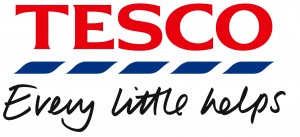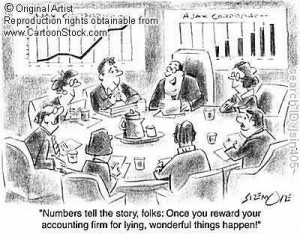Between this article and our in-class discussion about fraudulent accounting, I’ve come to realize that this particular field isn’t just the black-and-white of number crunching or bookkeeping. No, it seems clear that even large industry giants like supermarket chain Tesco can fall under the trap of misrepresenting revenues (inflating  profits by £250m) in an attempt to improve their competitive position. I personally feel there is a lot of ambiguity on whether these alterations were misconceived or if they were deliberate, but a journalist from The Economist does state that if Tesco’s books were in fact “deliberately cooked”, then this fraud would be the biggest scandal for a supermarket retailer since the 2003 US Food scandal.
profits by £250m) in an attempt to improve their competitive position. I personally feel there is a lot of ambiguity on whether these alterations were misconceived or if they were deliberate, but a journalist from The Economist does state that if Tesco’s books were in fact “deliberately cooked”, then this fraud would be the biggest scandal for a supermarket retailer since the 2003 US Food scandal.
Tesco’s immediate response to being uncovered is also interesting, as hiring new financial director Alan Stewart suggests a responsive crisis management team to help the firm mitigate losses in shares and investments. I would think reaching out to the consumers through social marketing and promotional activities initially would be more beneficial in salvaging Tesco’s corporate image and revenue streams, but then I considered: what was the root cause of this revenue reporting failure?
However, as established above, Tesco does have strong internal quality and PR systems in place, which suggests to me that even structured franchises have their human resource kinks when it comes to reporting profitability and shareholder returns.


